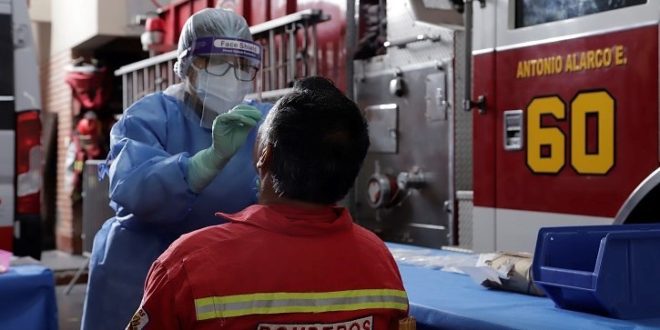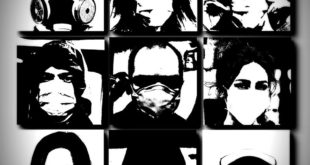First responders, including firefighters, emergency medical services (EMS) personnel, and law enforcement officers, are working on the frontlines of the COVID-19 pandemic. However, first responders have been understudied as compared to healthcare workers with regard to mental health during the COVID-19 crisis. This study represents, to the best of our knowledge, the first published empirical evaluation of the mental health of first responders during the COVID-19 pandemic.
Data were collected early in the pandemic, between June-August 2020. The sample was comprised of 189 first responders, recruited nationally, who completed an online questionnaire battery. The sample was predominantly comprised of white, male firefighters and EMS personnel. First responders who identify as women and persons of color were underrepresented as were law enforcement officers.
A total of 122 of the respondents reported having some form of direct or indirect exposure to COVID-19. COVID-exposed first responders, compared to COVID-non-exposed first responders (n=67), were more likely to be in an EMS versus non-EMS role and to be in a career versus volunteer role. COVID-19-exposed first responders reported significantly greater alcohol use severity compared to non-exposed first responders. There was no significant difference between first responders with and without COVID-19 exposure in terms of either anxiety or depressive symptoms. Approximately 6.8% of the sample met probable criteria for PTSD, 18.4% met probable clinical criteria for anxiety, and 16.8% met probable clinical criteria for depression.
After considering effects of gender, trauma history, years as a first responder, and COVID-19 exposure, COVID-19-related worry and medical vulnerability — defined as medical conditions or history (i.e., respiratory disease; weakened immune system; hypertension; cardiac or cardiovascular symptoms or conditions) that elevate COVID-19-related risk — were associated with anxiety and depressive symptoms. Only COVID-19-related worry was associated with alcohol use severity and PTSD symptom severity. Data were collected in the early months of the pandemic in the U.S. As the pandemic and its daily effects intensified across specific regions of the U.S. over time, we need to know more about the course of mental health among first responders during the pandemic. Future work should integrate interviews, objective COVID-19 screens and antibody tests, and tests of inflammatory or physiological markers (e.g., heart rate, respiration) over time to provide greater depth across multiple methods of analysis.
Overall, the present investigation provides a preliminary glimpse into the potential impact of the COVID-19 impact on first responders, primarily firefighters and/or EMS. These results elucidate that it is not COVID-19 exposure per se but COVID-19-related worry that may be more relevant to symptoms of anxiety and depression. Among first responders exposed to COVID-19, COVID-19-related worry is robustly related to PTSD symptoms. More work relevant to alcohol use among first responders during the pandemic is necessary. This line of inquiry has direct clinical implications for informing specialized cognitive-behavioral interventions to reduce the risk of long-term mental health symptoms among first responders working during the pandemic.
Read the full paper: Vujanovic, A. A., Lebeaut, A., & Leonard, S. (in press). Exploring the impact of the COVID-19 pandemic on the mental health of first responders. Cognitive Behaviour Therapy. doi:10.1080/16506073.2021.1874506
Photo by: Navy Medicine

 Cognitive Behaviour Therapy A peer reviewed, multidisciplinary journal devoted to the application of behavioural and cognitive sciences to clinical psychology and psychotherapy.
Cognitive Behaviour Therapy A peer reviewed, multidisciplinary journal devoted to the application of behavioural and cognitive sciences to clinical psychology and psychotherapy.




